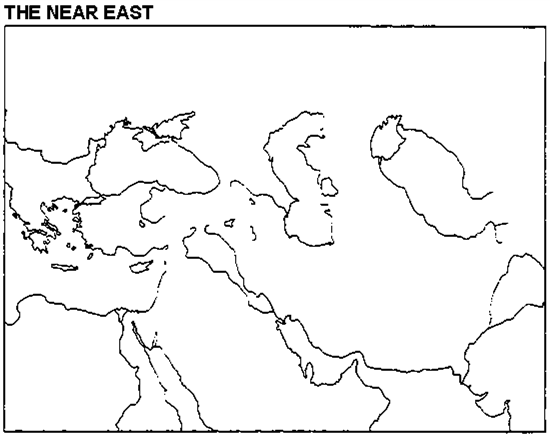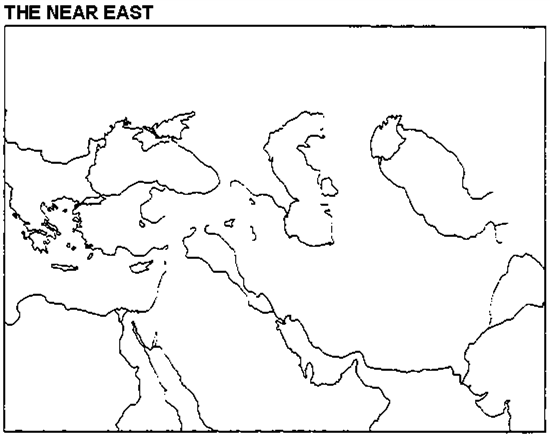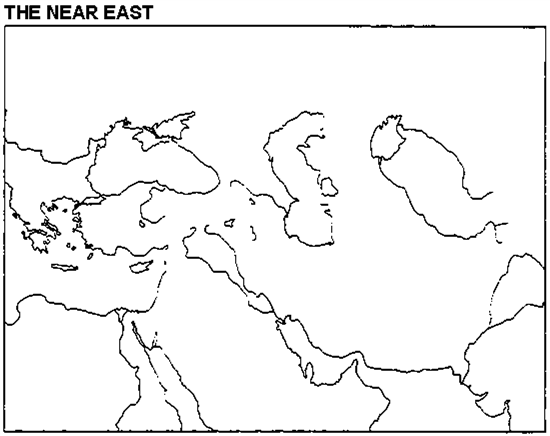Exam 5: The Hellenistic Age Cultural Diffusion
Exam 1: The Ancient Near East: The First Civilizations85 Questions
Exam 2: The Hebrews: a New View of God and the Individual90 Questions
Exam 3: The Greek City-State Democratic Politics78 Questions
Exam 4: Greek Thought From Myth to Reason77 Questions
Exam 5: The Hellenistic Age Cultural Diffusion76 Questions
Exam 6: The Roman Republic City-State to World Empire75 Questions
Exam 7: The Roman Empire a World-State90 Questions
Exam 8: Early Christianity a World Religion79 Questions
Exam 9: The Heirs of Rome Byzantium Islam and Latin Christendom95 Questions
Exam 10: The High Middle Ages Vitality and Enewal83 Questions
Exam 11: The Flowering of Medieval Culture the Christian Synthesis78 Questions
Exam 12: The Late Middle Ages Crisis and Dissolution76 Questions
Exam 13: The Renaissance Transition to the Modern Age88 Questions
Exam 14: The Reformation the Shattering of Christian Unity84 Questions
Exam 15: European Expansion Economic and Social Transformations88 Questions
Exam 16: The Rise of Sovereignty Transition to the Modern State84 Questions
Exam 17: The Scientific Revolution the Universe Seen As a Mechanism81 Questions
Exam 18: The Age of Enlightenment Reason and Reform89 Questions
Exam 19: The French Revolution the Affirmation of Liberty and Equality118 Questions
Exam 20: The Industrial Revolution the Great Transformation77 Questions
Exam 21: Thought and Culture in the Early Nineteenth Century105 Questions
Exam 22: Revolution and Counterrevolution 1815-184879 Questions
Exam 23: Thought and Culture in the Mid-Nineteenth Century Realism and Social Criticism81 Questions
Exam 24: The Surge of Nationalism From Liberal to Extreme Nationalism77 Questions
Exam 25: The Industrial West Responses to Modernization91 Questions
Exam 26: Imperialism Western Global Dominance92 Questions
Exam 27: Modern Consciousness New Views of Nature Human Nature and the Arts80 Questions
Exam 28: World War I the West in Despair87 Questions
Exam 29: An Era of Totalitarianism112 Questions
Exam 30: Thought and Culture in an Era of World Wars and Totalitarianism75 Questions
Exam 31: World War II Western Civilization in the Balance85 Questions
Exam 32: Europe After World War II Recovery and Realignment 1945-198987 Questions
Exam 33: The Troubled Present85 Questions
Select questions type
Which of the following is NOT one of the ways the world after Alexander differed from that existing before his conquests?
(Multiple Choice)
4.8/5  (47)
(47)
Instructions: Please write a thorough, well-organized essay to answer each question. Both the Hellenistic world and the modern world represent an age of cosmopolitanism. How are they similar, and how are they different?
(Essay)
5.0/5  (30)
(30)
Who studied in Alexandria, was a mathematician, established the science of hydrostatics, and created many ingenious inventions but dismissed his practical inventions as unimportant?
(Multiple Choice)
4.9/5  (33)
(33)
The stories of which legendary Greek hero inspired Alexander?
(Multiple Choice)
4.8/5  (34)
(34)
In its description of the world, Epicureanism looked back to which philosopher of the Hellenic Age?
(Multiple Choice)
4.9/5  (39)
(39)
The Hellenistic school of philosophy called Skepticism held that
(Multiple Choice)
4.9/5  (43)
(43)
Instructions: Please use this outline map of the Near East to answer the question(s).
 Draw in the boundaries of the four major Hellenistic states, and label each.
Draw in the boundaries of the four major Hellenistic states, and label each.
(Not Answered)
This question doesn't have any answer yet
Instructions: Please define the following key terms. Show Who? What? Where? When? Why Important?
Ptolemies
(Essay)
4.8/5  (37)
(37)
Hellenistic art displayed which of the following tendencies?
(Multiple Choice)
4.8/5  (47)
(47)
Instructions: Please define the following key terms. Show Who? What? Where? When? Why Important?
Stoicism
(Essay)
4.9/5  (41)
(41)
Instructions: Please use this outline map of the Near East to answer the question(s).
 Locate and label the following: Alexandria, Rhodes, Athens, and Alexandria Eschata.
Locate and label the following: Alexandria, Rhodes, Athens, and Alexandria Eschata.
(Not Answered)
This question doesn't have any answer yet
Which of the following is true of the changes ushered in by the Hellenistic Age?
(Multiple Choice)
4.9/5  (37)
(37)
Instructions: Please use this outline map of the Near East to answer the question(s).
 Locate and label the following: Alexander's home country, the river at the edge of the territory that was the furthest point Alexander reached in his campaigns, and the capital city of the Persian empire he conquered.
Locate and label the following: Alexander's home country, the river at the edge of the territory that was the furthest point Alexander reached in his campaigns, and the capital city of the Persian empire he conquered.
(Not Answered)
This question doesn't have any answer yet
Showing 41 - 60 of 76
Filters
- Essay(0)
- Multiple Choice(0)
- Short Answer(0)
- True False(0)
- Matching(0)